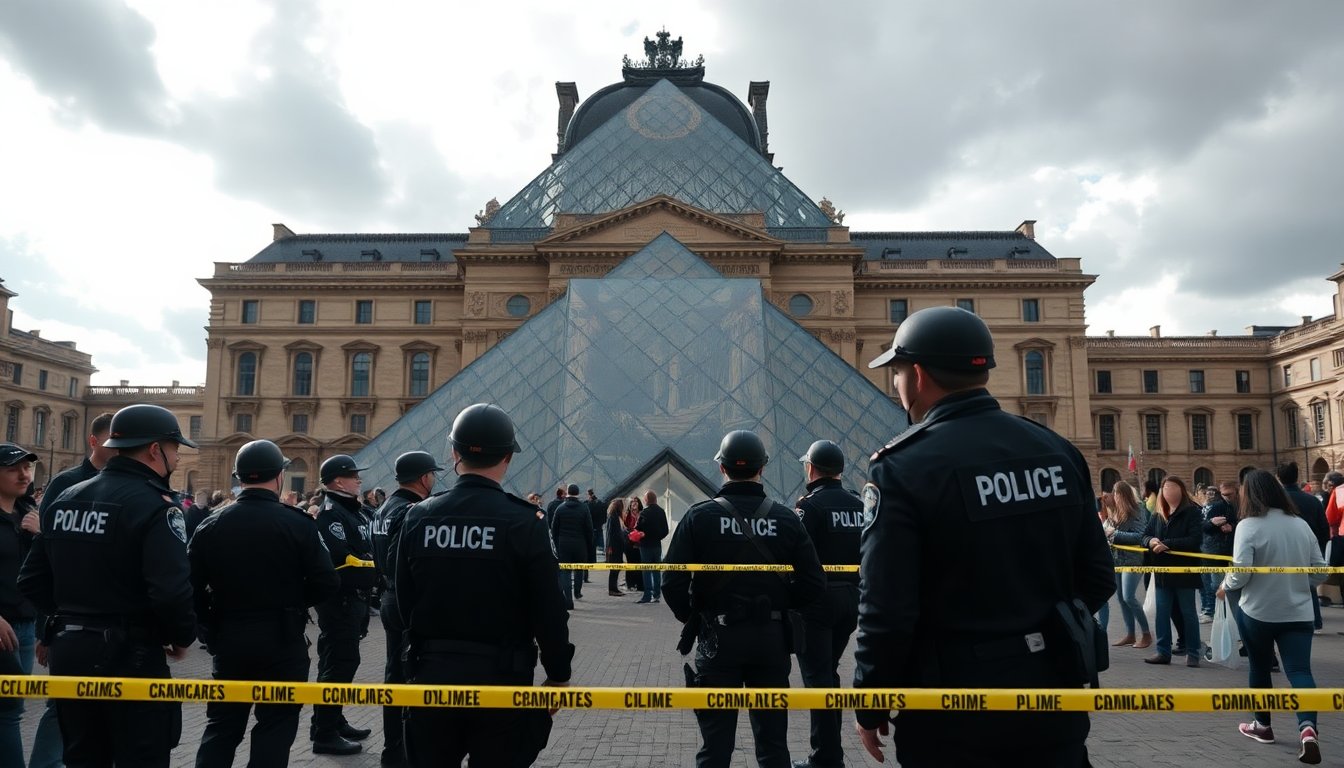Table of Contents
The theft at the Louvre Museum has ignited swift political backlash in France. The audacious heist, which occurred in broad daylight, has led various political factions to blame the government for failing to protect a key cultural institution.
Marion Maréchal, a prominent far-right figure, has been particularly vocal, criticizing President Emmanuel Macron’s administration for perceived shortcomings in law enforcement. She labeled the incident as making France a “laughingstock of the world,” and has since advocated for significant changes in the security of France’s cultural assets.
Political fallout from the Louvre theft
Maréchal’s criticisms target specific policies, including the €200 cultural vouchers for French high school students. She has suggested redirecting these funds to bolster security measures for France’s “national treasures.” This proposal underscores concerns that government priorities may not align with the pressing needs of cultural preservation.
Accountability and calls for resignations
In the aftermath of the theft, Maréchal has urged Culture Minister Rachida Dati to take responsibility for the security lapses that enabled the robbery. Dati acknowledged weaknesses in the museum’s security, linking them to a long history of neglect. She stated that the last four decades have seen insufficient focus on protecting artworks, with an emphasis instead on visitor safety.
Jean-Philippe Tanguy, a senior member of the National Rally party, echoed Maréchal’s views, attributing the heist to a broader “soft-on-crime ideology” within the French political and media landscape. He lamented that French museums and historical sites are “deliberately not secured” to the same standards as the invaluable treasures they house. National Rally President Jordan Bardella described the incident as a “humiliation,” questioning the government’s failures.
Proposals for change and enhanced security
Conservative lawmaker Alexandre Portier has announced plans to propose a parliamentary inquiry to examine the protection of French heritage and museum security protocols. This move follows alarms raised by trade unions representing museum staff about inadequate working conditions and insufficient personnel to ensure safety for visitors and artifacts.
Past security concerns at the Louvre
Security has long been a contentious issue at the Louvre. Recent trade union strikes have highlighted dissatisfaction among security personnel regarding understaffing, particularly as tourism numbers surged. Museum management faces increasing pressure to address these concerns, especially given the rising number of visitors to the world’s most popular museum.
In response, President Macron has unveiled an ambitious renovation plan to modernize the Louvre’s infrastructure. Dubbed Louvre — Nouvelle Renaissance, the project aims to include a new entrance and a dedicated exhibit for the Mona Lisa, along with significant upgrades to security systems. These enhancements are intended to integrate advanced surveillance technology and improve overall safety measures.
Current situation and future implications
Currently, the perpetrators of the Louvre heist remain unidentified, leading to the museum’s closure for two consecutive days as investigations proceed. This incident has not only triggered a political crisis but has also raised critical questions about France’s commitment to safeguarding its rich cultural heritage.
The turmoil extends beyond the museum incident, as former President Nicolas Sarkozy faces a five-year prison sentence, complicating the political landscape. Prime Minister Sébastien Lecornu’s government, which had previously halted a controversial retirement-age reform, now navigates added scrutiny amid this crisis.
Marion Maréchal, a prominent far-right figure, has been particularly vocal, criticizing President Emmanuel Macron’s administration for perceived shortcomings in law enforcement. She labeled the incident as making France a “laughingstock of the world,” and has since advocated for significant changes in the security of France’s cultural assets.0


